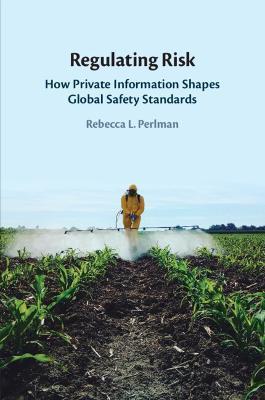When governments impose stringent regulations that impede domestic competition and international trade, should we conclude that this is a deliberate attempt to protect industry or an honest effort to protect the population? Regulating Risk offers a third possibility: that these regulations reflect producers' ability to exploit private information. Combining extensive data and qualitative evidence from the pesticide, pharmaceutical, and chemical sectors, the book demonstrates how companies have exploited product safety information to win stricter standards on less profitable products for which they offer a more profitable alternative. Companies have additionally supported regulatory institutions that, while intended to protect the public, also help companies use information to eliminate less profitable products more systematically, creating barriers to commerce that disproportionally disadvantage developing countries. These dynamics play out not only domestically but also internationally, under organizations charged with providing objective regulatory recommendations. The result has been the global legitimization of biased regulatory rules.




